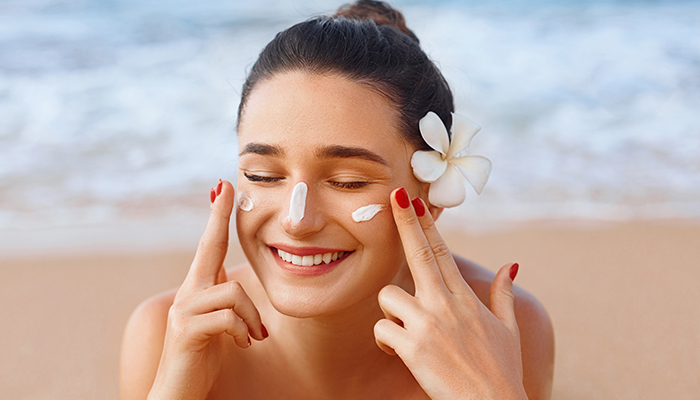The Ultimate Guide to Choosing the Right Sunscreen for Your Skin (Health & Beauty - Beauty)
Hot-Web-Ads > Health & Beauty > Beauty
Item ID 16236076 in Category: Health & Beauty - Beauty
The Ultimate Guide to Choosing the Right Sunscreen for Your Skin | |
Sunscreen is more than a summertime necessity; it is also a protective shield year-round against damaging ultraviolet (UV) rays. Whether you are at the beach, working outside, or walking to the store, the right sunscreen will help protect against sunburns, premature aging, and skin cancer. However, there are many choices, making it overly complicated to figure out which sunscreen is right for you. 1. Understand SPF Ratings SPF (Sun Protection Factor) indicates how well a sunscreen protects against UVB rays, the cause of sunburn. Dermatologists recommend a minimum of SPF 30 for everyday use - which protects against around 97% of UVB rays. If you are going to be outdoors all day or in more intense sun, look for SPF 50 or higher for better protection. 2. Look for Broad Spectrum Protection A quality sunscreen will protect against both UVA and UVB rays. UVA rays penetrate deeper into skin and are related to aging and skin damage; UVB rays are responsible for sunburns. Broad spectrum sunscreen protects against both types of UV rays and helps lower long-term risk. 3. Weigh Your Options Between Chemical and Mineral Sunscreen Chemical sunscreens utilize active ingredients, such as oxybenzone or avobenzone, to absorb UV rays. Meanwhile, mineral sunscreens use zinc oxide or titanium dioxide to physically block rays from entering the skin. For those with more sensitive skin, discussing sunscreen options with a dermatologist may be advised, as mineral-based sunscreens tend to be your least irritating option. 4. Determine Your Skin Type If you have oily or acne-prone skin, select a sunscreen that states it’s oil-free or gel-based, as these sunscreens will tend to be more lightweight and comfortable for this skin type; they also will not clog your pores. For dry skin, look for sunscreens that prioritize hydration, as ingredients in your sunscreen like glycerin and hyaluronic acid can help improve skin's moisture levels. If you have sensitive skin, fragrance-free, mineral-based sunscreens are typically your gentler option. 5. Search for Water-Resistant If you plan to swim, sweat, or partake in, outdoor sporting activities, a water-resistant sunscreen is your best option, as it will be more reliable and protective overall; nevertheless, be sure to reapply every 2 hours. Preferably, you will reapply sunscreen any time after you sweat or swim, even if the sunscreen states it's waterproof or water-resistant. 6. Ethics and Environment More consumers are becoming mindful about using eco-conscious and cruelty-free products. Some consumers are reading about issues like “Is Sun Bum Sunscreen safe?” for example, to not only learn about the health benefits of their sunscreen but also to be informed about the possible impact the product may have on the environment. Final Thoughts Selecting the best sunscreen is a combination of skin protection, comfort, and what is most important to you. By grasping SPF, your skin type, and other environmental considerations, you can choose a sunscreen that promotes  | |
| Related Link: Click here to visit item owner's website (0 hit) | |
| Target State: All States Target City : All Cities Last Update : Oct 07, 2025 7:12 AM Number of Views: 61 | Item Owner : Marie de Astell Contact Email: (None) Contact Phone: (None) |
| Friendly reminder: Click here to read some tips. | |
Hot-Web-Ads > Health & Beauty > Beauty
© 2025 Hot-Web-Ads.com
USNetAds.com | GetJob.us | CANetAds.com | UKAdsList.com | AUNetAds.com | INNetAds.com | CNNetAds.com | USAOnlineClassifieds.com
2025-10-17 (0.373 sec)